Axis 1 - Research and innovation
Main challenges
1a) Development of research and innovation (R&I) infrastructure
With its numerous universities, science and technology parks and research centres, the cooperation area has extensive capacities in research and innovation. At the cross-border level, technology parks, research centres and universities are already working together successfully, but it is crucial to make good use of the available capacities in the longer term.
Against this background, the following cross-border developments in particular are being sought:
- Strengthening the cross-border acquisition of scientific and technical skills;
- Improving the exchange of knowledge and synergies by bringing science networks together.
1b) Promoting business investment in R&I
The situation is similar for innovative enterprises located in the cooperation area: the region has a large number of highly innovative enterprises, in particular SMEs and research institutes, but networking between them is weak, especially at cross-border level. In order to make good use of and develop the innovation potential in the border region, it's of great importance to strengthen the exchange between SMEs and research institutions and to promote the establishment of networks between these actors.
Against this background, the following cross-border developments in particular will be targeted:
- Increasing cross-border competence development and creating transfer interfaces to support enterprises;
- Strengthening cross-border active or integrated clusters;
- Specific support for companies, especially SMEs and start-ups, to implement R&I activities more efficiently.
In this axis, 34 projects with a total budget of 31,128,097.50 euros were approved in two dedicated calls.
 REBECKA
REBECKA

REBECKA
Modello di valutazione delle varietà e delle superfici vitate considerando gli impatti e le opportunità date dal cambiamento climatico nelle Alpi
In a globalized world alpine agriculture is due to unfavorable topographical conditions, socio-economic demands and effects of climate-change under great pressure. This is particularly true for perennial crops such as vines. The projects objective is to develop a regional valuation method to rate the suitability for viticulture in South Tyrol and Carinthia. For sustainability reasons and for planning new vineyards collected climate data of the past 20 years and its impacts on winegrowing will be taken into account. The following list summarizes the three main focuses of the planned activities: • Firstly, the analyses of crop yields from South Tyrolean and Carinthian wineries based on historical data to characterize the effects by climate conditions and climate changes over the past years. • Secondly, a total of 40 vineyard sites will be distributed among the entire vineyard areas. The development of the vines will be observed and described by its corresponding climate parameters. • Thirdly, a rating model will be designed, which captures both the historical wine harvest information as well as the viticultural and climatic results of the test sites. The valuation model will be made available to the public and ongoing updated. The projects team consists of an interdisciplinary cooperation of different South Tyrolean and Carinthian research institutions with complementary areas of expertise.
Project partners
- Lead Partner (BZ) Versuchszentrum Laimburg
- Project partner 1 (BZ) EURAC Bozen
- Project partner 2 (KAR) JOANNEUM RESEARCH Forschungsgesellschaft mbH
- Project partner 3 (KAR) Kammer für Land- und Forstwirtschfat in Kärnten
Project budget
751.234,65 Euro
Project duration
01.11.2016 - 30.04.2019
Project website
 Concrete
Concrete

Concrete
Protezione superficiale di opere in calcestruzzo – Aumento della durabilità tramite protezioni innovative
The difficulties concerning construction projects don’t stop with national borders but affect the entire territory of North and South Tyrol likewise. Strategic structures built from concrete are equally affected by external regional influences, such as climate and resources available within this Alpine area. The lack of consideration of these regional characteristics leads to stronger damages in structures, which depends on construction and load, and consequently influences the durability of buildings significantly. However these features are not considered sufficiently within the National and European laws and norms. This missing inter-regional guidance causes stakeholders to use different approaches, empirical methods and solutions to solve these same and reoccurring regional problems. The scope of this here presented project is to combine interregional knowhow to one common pool of knowledge and to analyze regional influences and resources. The latter will be adapted to new and nature based innovative surface protections, to extend the maintenance intervals and the whole life span of concrete structures according to the European Standards of an optimized building management system. These laboratory analysis are accompanied by long term monitoring of buildings to guaranty the practical use and the plausibility of results.
Project partners
- Lead Partner (TIR) Wasser Tirol - Wasserdienstleistungs-GmbH
- Project partner 1 (BZ) ISB Istituto tecnologia materiali edili Alto Adige scrl
- Project partner 2 (BZ) KOFLER & RECH SPA
- Project partner 3 (BZ) Beton Eisack srl
Project budget
1.388.994,76 Euro
Project duration
14.03.2016 - 30.04.2019
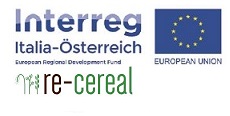 RE-CEREAL
RE-CEREAL

RE-CEREAL
Rete di ricerca e trasferimento tecnologico per il miglioramento dell'utilizzo di cereali minori e pseudocereali
The overall objective of the project is to strengthen cross-border cooperation among universities, research centers and companies, through the establishment of a network of partners with multi-disciplinary skills (genetics, agronomy, chemistry, nutrition, and food production). The "minor" cereals (MC) and pseudo-cereals (PC) such as buckwheat, millet and oats, cultivated in the Program area until mid-twentieth century, are nowadays neglected in favor of more profitable wheat and corn. This leads to negative consequences, such as over-exploitation of land in monoculture, and the loss of nutrients considered subordinate to the maximization of the technological performance of the cereals. On the contrary, MC and PC have several positive aspects: their cultivation increases biodiversity and environmental sustainability (as they require limited agronomic inputs) of the food chain, and their wealth in minerals, amino acids and vitamins enriches our diet. Hence their importance for the gluten-free food industry and the traditional one, where wheat is used. Given this background, the project aims to establish a network that can share skills and transfer knowledge in order to support the spread of MC and PC, by means of genetic selection and improvement activities, and to promote their use in food industry and strengthening of nutraceutical components in bread, pasta and biscuits.
Project partners
- Lead Partner (BZ) Dr. Schaer SpA
- Project partner 1 (BZ) Centro di Sperimentazione Agraria e Forestale Laimburg
- Project partner 2 (FVG) Università degli studi di Udine
- Project partner 3 (TIR) Universität Innsbruck
- Project partner 4 (KAR) Dr.Schär Austria GmbH
- Project partner 5 (KAR) KÄRNTNER SAATBAU
Project budget
1.322.623,53 Euro
Project duration
14.03.2016 - 30.04.2019
Project website
 IDEE
IDEE

IDEE
Network di ricerca transfrontaliero per la progettazione Integrata Di sistemi Energetici Efficienti in aree urbane
According to EUROPE 2020 Strategy and the EU Action Plan for a circular economy, resource-efficiency is strictly linked to the competitiveness and sustainability of territories. It is assumed that high efficiency rates in future building stock, new technologies like low temperature district heating and heat pumps, recovery of heat and energy waste in industry, full exploitation of the potential of biomass, will make our energy systems more clean and efficient. In this context, IDEE project will capitalize the results of Urban Energy Web project (Interreg IVA Italy-Austria) and go beyond it creating a cross-border research network on "integrative system analysis on urban energy systems". Such research nucleus will combine the complementary competences of 4 partner research centres and one public authority to develop an integrated bottom-up assessment framework on urban energy systems. A new integrative model framework will be elaborated, interpreting energy, environmental, building, economic and geographic information data will be jointly elaborated to support local authorities and other key stakeholder to plan energy investments in urban areas, giving strategic inputs on available potentials, the most innovative applicable technological solutions and their environmental impact, costs and return on investment. Such models will be applied in pilot selected areas (Maniago - FVG, Feltre - Veneto and Salzburger Seenland - Austria), thus being replicable also in other territories
Project partners
- Lead Partner (FVG) Università degli studi di Udine
- Project partner 1 (VEN) Certottica Scrl
- Project partner 2 (SBG) Research Studios Austria Forschungsgesellschaft mbH
- Project partner 3 (VEN) Consorzio dei comuni del bacino imbrifero montano del piave appartenenti alla Provincia di Belluno
- Project partner 4 (IT) Università Iuav di Venezia
Project budget
873.273,15 Euro
Project duration
02.11.2016 - 03.05.2019
Project website
Publications
.
 Labs.4.sme
Labs.4.sme

Labs.4.sme
Digital Labs 4.0 per l’innovazione delle PMI transfrontaliere
The Labs were defined by Mit (FabFoundation) as "a place to express themselves, create, learn, and invent", aspects that have great potential for innovation of SMEs as well as for applied research; the facilities they offer and the range of services available can, in a smart and lean way, support companies in a co-design process to make products and services internationally competitive. Indeed, SMEs are too often penalized by their size in order to face investment in R & I. The project Digital Labs 4.0 for the innovation of cross-border SMEs (Labs.4.SMEs) therefore aims to fill in this innovation gap for the cross-border SMEs through a model and cooperation tools that can enhance the innovative role of Labs for SMEs on the one hand and provide SMEs with a "user friendly" R & I with reduced times and costs. Entrepreneurs and fabbers will benefit from: - A map of labs of the cross-border territory - A web platform whose function will be to: give visibility to the Labs services, facilitate matching between demand (SMEs) and supply (Labs), create a NETWORK to promote synergies between SMEs and Labs, share good practices - A successful and transferable model for cooperation between Labs and SMEs
Project partners
- Lead Partner (IT) ECIPA
- Project partner 1 (VEN) FABLAB Castelfranco Veneto SRL
- Project partner 2 (FVG) Associazione artigiani piccole medie imprese Trieste confartigianato
- Project partner 3 (BZ) APA-formazione e servizi cooperativa
- Project partner 4 (TIR) FH Kufstein Tirol Bildungs GmbH
- Project partner 5 (SBG) Salzburg Research Forschungsgesellschaft
Project budget
1.101.836,00 Euro
Project duration
03.02.2017 - 01.11.2019
Project website
 PreCanMed
PreCanMed

PreCanMed
Creazione di una piattaforma per la medicina anticancro di precisione
Therapeutic strategies that are based on the individual genetic profile of a patient represent a new frontier of applied cancer research. These strategies are expected to reduce the socio-economic impact of current cancer therapies that are cost-intensive and often ineffective, thus releasing pressure on regional health systems. In this context, tumor-organoids are of special relevance. Tumor-organoids are three-dimensional cellular complexes that are cultivated in vitro from cells that were previously obtained from patient tumors or biopsies. Tumor-organoids have the special property to mirror the key-features of the original patient’s tumor. Thus, Tumor-organoids represent an ideal tool to develop patient-specific therapies by performing drug-screenings. The PreCanMed project aims to strengthen the collaboration between Italian and Austrian institutions that perform genetic, clinical and biotechnology research in order to establish a common competence-platform for the generation, cultivation and storage (Live-biobank) of numerous patient-derived Tumor-organoids. Tumor-organoids and know-how will be freely accessible, thus making this cutting edge technology accessible to the academic, translational, clinical and pharmaceutical research and development sector.
Project partners
- Lead Partner (FVG) Consorzio interuniversitario per le biotecnologie - Laboratorio nazionale
- Project partner 1 (FVG) Università degli studi di Udine
- Project partner 2 (FVG) Università degli Studi di Trieste
- Project partner 3 (TIR) Università di medicina Innsbruck
- Project partner 4 (TIR) ADSI - Austrian Drug Screeening Institute GmbH
Project budget
1.294.139,55 Euro
Project duration
14.03.2016 - 30.06.2019
Project website
 ICAP
ICAP

ICAP
Innovazione tramite applicazioni combinate delle tecnologie al plasma
Nowadays the success factors for companies are product innovation and efficient use of resources (energy, raw materials etc.). The surface treatments, in this contest, are strategically important because they allow to decorate, protect and give to the substrates the desired physical, chemical and mechanical properties. Many of the features required by a material depend on the characteristics of its surface: to be able to modify its properties saving resources and reducing waste and emissions is an important tool for companies of the program area. Plasma technologies allows to modify the surface characteristics with hi-tech and eco-friendly processes. There are obstacles to use those technologies given by unavailability of equipments, required know-how for their management and especially the cost of experimentation and testing. Thanks to this project it will be possible to put together the multi-disciplinary competences and hardware of each of the partners to overcome these barriers. The main activities of this project will be: - Identification of the SME’s needs of the program area - Performing experimentations - Combination of the different plasma technologies - Dissemination, information and advertising of studies and results.
Project partners
- Lead Partner (VEN) Certottica Scrl
- Project partner 1 (KAR) Kompetenzzentrum Holz GmbH
- Project partner 2 (TIR) Universität Innsbruck
- Project partner 3 (FVG) CONSORZIO INNOVA FVG
Project budget
837.905,11 Euro
Project duration
01.07.2016 - 31.12.2018
Project website
 AppleCare
AppleCare

Apple Care
Curare l'allergia ai pollini di betulla mangiando mele
In Central Europe, 20% of the population are affected by pollen allergy. This percentage is rising steadily, also in Tyrol and South Tyrol. An efficient therapy consists of a long-term hyposensibilisation against the birch pollen allergen Bet v1 by pluriennal uptake of synthetic compounds, in order to adapt the human immune system to Bet v1. In comparison, it would be of upmost advantage to induce a hyposensibilisation through simple uptake of food. Due to their highly similar composition and structure, the birch pollen allergen Bet v1 and the apple allergen Mal d1 cause a strong cross-reaction in the human body. This cross-reaction provides an opportunity to use apples in a controlled and established dosage to cure pollen allergy. A transnational approach combining different research competences in medicine, molecular biology and structural chemistry will identify those apple varieties and dosages that are necessary for a successful therapy of pollen allergy. This interdisciplinary synergy will be used to establish an interregional database of allergy patients and to identify those fruits that are best suited for both a low-allergen diet and as a sustainable remedy for allergies. Last but not least, these results will promote the cross-border innovation potential.
Project partners
- Lead Partner (BZ) Centro di Sperimentazione Agraria e Forestale Laimburg
- Project partner 1 (TIR) Universität Innsbruck
- Project partner 2 (TIR) Università di medicina Innsbruck
- Project partner 3 (BZ) Azienda Sanitaria dell'Alto Adige - Comprensorio sanitario di Bolzano
Project budget
799.905,32 Euro
Project duration
01.01.2017 - 30.06.2019
Project website
.
 MEMS
MEMS

MEMS
Eterogeneità del Melanoma: dai monti al mare- altitudine, esposizione solare e inquinamento nello sviluppo della neoplasia cutanea
Cutaneous melanoma has become an increasingly common tumor in most developed countries as a consequence of greater exposure of pale Caucasian skin to natural ultraviolet (UV) radiation. The aim of the project MEMS is to strengthen the partnership among research institutes in the programme area favouring the interchange of technical as well as scientific knowledge on cutaneous melanomas. Through the partnership of health and research institutions in Italy and Austria, the project will investigate if environmental variables, such as the altitude of residence, UV and/or pollutants exposure could contribute to the development of specific types of cutaneous melanomas and could promote its progression. Innovation in this project will refer to association of local heterogeneity to clinical, microscopic and molecular heterogeneities in cutaneous melanoma. The trans-border area of our partnership is heterogeneous: the seaside (Trieste), Northern and Southern Alps (Tyrol and South Tyrol), and the valleys (Aviano). That area is mostly populated by pale-skin inhabitants, with higher incidence of cutaneous melanomas. In that population we are going to characterize melanoma heterogeneity on the clinical and molecular level in order to associate those variables to environmental ones to investigate their relationship with the development of the disease.
Project partners
- Lead Partner (FVG) Università degli Studi di Trieste
- Project partner 1 (TIR) Universität Innsbruck
- Project partner 2 (BZ) Azienda Sanitaria dell´Alto Adige - Comprensorio sanitario di Bolzano
- Project partner 3 (FVG) Centro di riferimento oncologico
Project budget
788.802,43 Euro
Project duration
15.02.2016-15.08.2019
Project website
 Coat4Cata
Coat4Cata

Coat4Cata
Sviluppo di rivestimenti e processi di rivestimento per il trattamento catalitico dei gas esausti
Target of the project is the mutual development of catalytic highly active coating materials and coating processes for the preparation of exhaust gas catalysts for vehicles and industry. The support materials which are coated with catalytic active powders (= catalysts) are integrated into the exhaust lines of combustion engines (e.g. in passenger cars, trucks, construction machines, tractors, ship engines) or/ and into the exhaust system of industrial plants (e.g. cement plant, waste incineration) respectively. The catalysts convert the emitted harmful substances (nitrogen oxides, carbon monoxide, hydrocarbons, soot, organic substances) into harmless compounds such as water, nitrogen and carbon dioxide. To meet the future stricter limits of pollutants in the exhaust gas, it is necessary to use catalysts with enhanced efficiency and catalytic more active components. More effective catalysts are also able to lower the carbon dioxide emission.
Project partners
- Lead Partner (KAR) Treibacher Industrie AG
- Project partner 1 (FVG) Università degli studi di Udine
Project budget
788.802,43 Euro
Project duration
01.10.2016 - 31.03.2019
Project website
 InCIMa
InCIMa

InCIMa
Intelligente caratterizzazione di materiali intelligenti
The main goal of InCIMA project is the establishment of a delocalized cross-border infrastructure for the synthesis and characterization of functional smart materials at nano, micro and macro level, through the exploitation of state-of-the-art spectroscopic techniques of imaging and mapping, that employ a wide radiation range, from far infrared to hard X-rays. The cooperation will be realized by the synergic complementation and the improvement of several analytic techniques and synthetic approaches, nowadays employed by each partner individually, for the optimization of two material types: 1- Totally natural rigid foams derived from byproducts of wood industries, such as tannin and lignin, to be used as new materials for green-building (for thermic and acoustic isolation), as well as for water purification from contaminants of emerging concern (natural filtering systems) – OBJECTIVE 1 2- Plasmonic metamaterials to be used in the infrared and ultraviolet spectral range, for application as sensor of diluted chemical analytes, for environmental and biomedical diagnosis. The ultimate vision of integration of contaminant absorption capacity and dilute analyte detection within a single material, such as the bio-foam, will be forecasted – OBJECTIVE 2
Project partners
- Lead Partner (FVG) Elettra - Sincrotrone Trieste S.C.p.A.
- Project partner 1 (SBG) Salzburg University of Applied Sciences
- Project partner 2 (SBG) Paris-Lodron-Universität Salzburg
Project budget
837.289,21 Euro
Project duration
01.01.2017 - 31.07.2019
Project website
 OutFeet
OutFeet

OutFeet
Ergonomia delle calzature: da analisi qualitativa a metodo scientifico
Wellbeing, comfort and safety in outdoor shoes have always been based on parameters that vary from person to person (male, female, weight, build, etc.). The aim of the project is to go beyond this subjective approach by taking a merely qualitative analysis to higher scientific level. Trade people and consumers (excursionists, sports people, etc.) will be able to benefit from sure and reliable criteria. For companies, this will provide more know-how when designing and producing outdoor footwear, while consumers will be more knowledgeable about product features. All this becomes particularly important in the program area, where outdoor shoes are used in a great many activities not just in sports (such as mountain rescue work) and where there are many companies in the sector. Comfortable footwear makes for safe footwear: this reduces the consequences of any accidents and therefore social costs. The partners will be involved in – according to their specific know-how – collecting field data, prototyping any sensorized devices, and comparing real and scientific data, thus developing a standard method.
Project partners
- Lead Partner (VEN) DOLOMITICERT SCARL
- Project partner 1 (IT) Università degli Studi di Padova
- Project partner 2 (TIR) Centro di technologia per sci e sport alpini srl
Project budget
451.412,74 Euro
Project duration
01.07.2016 - 31.12.2018
.
 AlpSporTec
AlpSporTec

AlpSporTec
Equipaggiamento sportivo esposto all'ambiente Alpino
Mountaineering is crucial for tourism in the Alpine region and represents a significant economic factor. The security risks that are associated with the exercise of these sports can be significantly influenced by specific protective equipment. To minimize the risk of injury while increasing the comfort of mountaineers, the present project sets itself 3 goals: 1) The development of a textile fiber for use in climbing ropes, which changes its color as a function of the exposure to UV radiation and the consequent aging of the material. The color of these fibers indicates when the rope should be replaced for safety reasons. 2) The study of friction of textiles on snow and ice, with the aim to develop a tissue that helps reduce the speed and, thus, the risk of injury in the case of falls (e.g. in alpine skiing). 3) To increase the wearing comfort of mountaineering clothing by developing and researching innovative textile materials that exhibit favorable thermoregulatory properties, while ensuring protection against environmental influences and without limiting the required mobility for the exercise of these sports.To realize these objectives a transnational consortium with unique expertise in biomechanics, performance physiology, textile science and industrial engineering will be established.
Project partners
- Lead Partner (TIR) Centro di technologia per sci e sport alpini srl
- Project partner 1 (VEN) DOLOMITICERT SCARL
- Project partner 2 (TIR) Universität Innsbruck
- Project partner 3 (IT) Università degli Studi di Padova
Project budget
1.018.223,85 Euro
Project duration
01.07.2016 - 31.12.2018
Project website
 ICAWER
ICAWER

ICAWER
Interregional Concept for Advanced Wastewater Energy Reclamation
Wastewater treatment plants (WWTPs) present one of the major energy consumers of municipalities. However, WWTPs are also capable of supplying energy by on-site methane production. The progressing worldwide energy transition faces unsolved issues in terms of fossil fuels. Great amounts of crude oil and carbon natural gas can be replaced by electricity and heat. However, the non-substitutable part exceeds the capacity of recent technology by far (Source: Fraunhofer IWES). WWTPs as an existing, ubiquitous and comparable infrastructure could contribute valuably in this matter. Wastewater associations do not identify themselves with this responsibility since their major task remains the efficient purification of water. However, by intensified energy efficiency like decreasing energy demand and increasing energy production, WWTPs may satisfy the need for renewable methane. The Interreg-region shows comparable infrastructures, wastewater characteristics, regulations and ecological guidelines. Previous research projects (EnerWater) found great potentials in energy efficiency as well as geographical differences. Therefore, it is easy and reasonable to transfer technologies and methods within this area and reinforce know- how exchange.
Project partners
- Lead Partner (TIR) SYNECO tec GmbH
- Project partner 1 (TIR) Universität Innsbruck
- Project partner 2 (BZ) SYNECO srl
- Project partner 3 (TIR) BioTreaT GmbH
- Project partner 4 (BZ) ARA PUSTERIA SPA
- Project partner 5 (BZ) eco center S.p.A
- Project partner 6 (TIR) Abwasserverband Zirl und Umgebung
- Project partner 7 (TIR) ARAconsult GmbH
Project budget
1.353.445,00 Euro
Project duration
11.11.2016 - 28.02.2019
Project website
Publications
 Low Tech
Low Tech

Low Tech
Costruire nelle Alpi - Low Tech
With the 2020 targets, the EU has set itself the ambitious task to make the way for a carbon-neutral future. The EU energy efficiency directives for the building sector (2002/91 / EC, 2010/31 / EU, 27/2012 / EU) were implemented in South Tyrol by the BLR NR. 362/2013 and in Austria by the "OIB Guideline 6". Both regions have adopted ambitious energy strategies (Salzburg2050, KlimaLand Strategy). Energy efficiency policies are implemented by complex and costly measures and procedures for the building envelope and by a large number of housing technology. They often fall short of the expected savings rates for energy, CO2 emissions, the ecological footprint and maintenance costs. At the same time, the increasing overall complexity of the system "building" requires detailed knowledge of specialized local SMEs in the construction industry, planners and users of the buildings. The project "Alpines Bauen - Low Tech" aims to find "technology-saving" solutions through analysis, good practices and the use of local expertise that increase energy efficiency throughout the entire life cycle of the building, making it environmentally and economically viable by keeping the high standards for the performance, practicability and comfort. The acquired knowledge will be passed to construction-related local SMEs, stakeholders and the population in order to promote cost-effective, high-quality and greener building in the Alpine area.
Project partners
- Lead Partner (BZ) Agentur für Energie Südtirol – KlimaHaus
- Project partner 1 (BZ) EURAC Research – Institut für Erneuerbare Energien
- Project partner 2 (BZ) NOI Techpark Südtirol - Alto Adige
- Project partner 3 (SBG) Fachhochschule Salzburg
- Project partner 4 (SBG) Innovations- und Technologietransfer Salzburg GmbH
- Project partner 5 (SBG) Kompetenzzentrum Bauforschung GmbH
Project budget
1.685.017,00 Euro
Project duration
31.10.2016 - 31.12.2019
Project website
 AGEDESIGN
AGEDESIGN

AGEDESIGN
Rafforzamento delle capacità di ricerca e innovazione nelle apparecchiature e servizi per l'invecchiamento attivo ed in salute
The project consists of a joint research activity (Veneto-Salzburg) in order to define, develop and test new “design concepts” of products and services for ageing people. Its main scope is to provide in the near future suitable tools to improve and preserve health and wellness of elderly people and to safeguard them from physical and psychological problems. Such new future tools smartly integrate existing technologies at affordable prices, are deeply interconnected and easily wearable. They facilitate home assistance and the monitoring of physical activities inside and outside home perimeter in a friendly way, integrated with the clothing, becoming tools that looks like ornamental objects. They collect and manage a lot of physical and behavioural data and at the same time monitor a lot of conditions of the environment where elderly person is staying or passing. The project foresees the joint definition of the objectives of 4 research lines, the analysis of the differences and compatibility of the research results when exploited in Italy and in Austria, the 'implementation of the research and the production of 4 "design concept", a demonstrative check on a panel of end-users, the final characterization and the evaluation of forms and methods for the continuation of the search. The project will be an opportunity to start a new phase of crossborder joint research activity in an area of high local demand and future high development chances.
Project partners
- Lead Partner (VEN) Fondazione Centro Produttività Veneto
- Project partner 1 (IT) Università Iuav di Venezia
- Project partner 2 (VEN) Azienda ULSS 1 Dolomiti
- Project partner 3 (SBG) Salzburg Research Forschungsgesellschaft
- Project partner 4 (SBG) Paris-Lodron-Universität Salzburg
Project budget
1.422.219,65 Euro
Project duration
01.11.2016 - 30.04.2019
Project website
.
 EXOTHERA
EXOTHERA

EXOTHERA
Exosomes for regenerative, immunosuppressive, neuroprotective, and oncosuppressive therapies
Exosomes (EV) are small vesicles ensuring transport of molecules between cells throughout the body. EVs contain specific signatures and have been shown to strongly impact on the fate of recipient cells. Their small size (<1μm) plus biological and physical functions make them perfect candidates as therapeutic agents in several fields (e.g. immune therapy, cell-free regenerative medicine, etc). Despite their great potential for biomedicine, there is still a lack of standards for EV isolation and quantification. In addition, specific in vitro potency assays are required to better predict their potential therapeutic activity. There is no rational set of criteria available so far to design synthetic EVs for specific clinical tasks. Networking and cooperation of research&clinical centers of scientific excellence from transnational area is therefore essential to address these issues. Within EXOTHERA, we plan to develop an integrative approach that allows correlating physical and molecular properties of EVs with their function and therapeutic role. As short-term goals we will define best protocols for EV purification, quantification and sorting, characterize EVs physically and chemically, study their interaction with recipient cells, and establish a comprehensive correlation among all these properties, with the long-term view of optimizing EV-based therapeutic strategies in three relevant clinical frameworks: pseudoarthrosis&bone fracture healing, glioblastoma and spinal cord injury.
Project partners
- Lead Partner (FVG) Elettra - Sincrotrone Trieste S.C.p.A.
- Project partner 1 (SBG) Paracelsus Medizinische Privatuniversität
- Project partner 2 (FVG) Università degli studi di Udine
Project budget
823.263,87 Euro
Project duration
01.01.2017 - 31.07.2019
Project website
 EES AA
EES AA

EES AA
Entrepreneurial Ecosystem Alpe Adria
In last years the "battle for talents" has intensified on the global level boosting the outflow of entrepreneurial talents and innovative companies from the cross border areas into the more attractive start-up ecosystems. Another critical aspect is the low level of region’s internal/external connections, and the need to reinforce innovation networks for improved cooperation. Addressing the above, EES AA will be pioneer in linking local entrepreneurial and start-up hubs in a cross border Entrepreneurship Cluster, where technology parks, universities, incubators and co-working spaces play a central role enabling the joint promotion of the Entrepreneurial Ecosystem Alpe Adria as destination for best innovative companies of the region and visible on a global level. The targeted breakthrough EES AA will bring about: 1) Formation of a cross-border entrepreneurial destination Alpe-Adria through development of a common vision, strategy and action plan (including joint Lighthouse events, strategic matching and coordination with parallel Entrepreneurial Ecosystems. 2) Creation of a systematic package of high level services supporting the set up and growth of innovative SMEs/start-ups within the Programme area (mobilization schemes, start-up softlanding, projects with market replication potential). 3) Deployment of high level cross border entrepreneurial mentoring program.4) Development of an educational program on entrepreneurship and piloting it within the project area.
Project partners
- Lead Partner (KAR) Kärntner Wirtschaftsförderungsfonds
- Project partner 1 (FVG) Friuli Innovazione Centro di Ricerca e di Trasferimento Tecnologico
- Project partner 2 (VEN) t2i – trasferimento tecnologico e innovazione s.c.a r.l.
- Project partner 3 (KAR) Lakeside Science & Technology Park GmbH
- Project partner 4 (KAR) build! Gründerzentrum Kärnten GmbH
Project budget
1.647.367,81 Euro
Project duration
01.01.2017 - 01.07.2019
Project website
 FACEcamp
FACEcamp

FACEcamp
Centro di competenza per facilitare lo sviluppo di sistemi avanzati di facciata
FACEcamp project aims at strengthening a long-term transnational cooperation among companies and R&I entities in the field of advanced façade systems for healthy, comfortable and energy efficient buildings. FACEcamp goal is to support stakeholders to cope effectively with the facade performances. Thus, the specific objectives are: (1) to establish a transnational competence center on advanced façade system, enhancing and sharing knowledge among research organization and enterprises, and (2) to improve existing metrics, modelling and measuring procedures to show the benefits of the advanced façade systems to a wide range of stakeholders. The definition and the establishment of the centre will be performed with a bottom-up approach thanks to the involvement of both IT and AT actors, already representing an excellence within the territory and beyond. Workshops, trainings and conferences will disseminate results at local and international level, exploiting the centre as knowledge platform for private and public actors. Expected results, are (1) the establishment of a cross-border and internationally recognised competence centre (2) the reduction of the knowledge gap among stakeholders, and (3) the increase of the competitiveness of local actors offering excellence in the sector. The local expertise in the field will be strengthened and highlighted, thus creating the basis for an increased attractiveness of the territory in terms of new businesses and related workplaces.
Project partners
- Lead Partner (BZ) Accademia Europea Bolzano
- Project partner 1 (BZ) IDM Suedtirol - Alto Adige
- Project partner 2 (TIR) Universität Innsbruck
- Project partner 3 (TIR) HELLA Sonnen- und Wetterschutztechnik GmbH
- Project partner 4 (TIR) Bartenbach GmbH
- Project partner 5 (BZ) Glassadvisor Srl
- Project partner 6 (BZ) FRENER & REIFER SrL
Project budget
1.178.888,44 Euro
Project duration
09.01.2016 - 31.12.2019
Project website
 StarEU
StarEU

StarEU
Startup.Euregio
Start-ups and spin-outs (when existing businesses form new companies) promote future development. They form the target group of the program StarEU. To simplify matters, in this project the term "start-up" covers both start-ups and spin-outs. In Tyrol, in South-Tyrol and in Trentino there have been efforts over the past years to implement a start-up ecosystem on a regional level. But only joint efforts will fulfill the main goal: to build a dynamic ecosystem for start-ups and to persist internationally. Therefore Tyrol and South-Tyrol decided to carry out the project together with Trentino, which is outside the Interreg-Program-Area: Nevertheless, the strengths of Trentino complete both regions ideally in order to build a sustainable, dynamic ecosystem. The project offers the unique opportunity to develop the Euroregion Tyrol as a region for start-ups on a European level. Thereby shall be built upon existing strengths. New tools from the international start-up hotspots shall be integrated. The importance of this project was acknowledged by the governors of the three regions (resolution in the EGTC-Board 28/05/2015).The main goal is to successfully build a sustainable start-up ecosystem and to create an interregional start-up network with a minimum of 100 active members. At least 300 projects shall be supported, which should lead to more than 80 start-ups and more than 100 co-operations. Finally more than 60 business angels shall be integrated in a network for investors.
- Lead Partner (TIR) Standortagentur Tirol GmbH
- Project partner 1 (BZ) NOI AG
- Project partner 2 (IT) Trentino Sviluppo Spa socio unico
Project budget
1.003.212,55 Euro
Project duration
01.02.2017 - 31.12.2019
Project website
.
 ALFFA
ALFFA

ALFFA
Analisi globale e multiscala dei fattori che influenzano la fauna ittica delle zone centro-alpine
River ecosystems are strongly influenced by landform and human activities within the surrounding valley at multiple scales. Most rivers are contaminated by a combination of different interventions, leading to a dramatic change in the aquatic habitat and the organism community. Fish are an established biological indicator in the European Union. Through information about species assemblage, abundance, dominance and population structure it is possible to make reliable predictions about the whole river ecosystem. The dramatic change within the fish fauna in Tyrol and South Tyrol become evident through the local decline of populations, the threat of fish stocks and the disappearance of species. An additional threat is the loss of the genetic integrity due to stocking activities with non native species. This, too, can lead to the loss of autochthonous species. In contrast to most of the previous research where only individual originators were examined, in this project we will determine the influence of (as far as possible) all influence factors and make them visible through geostatistic and multiscale models. We plan on incorporating the gained findings into river management plans, which can be used to influence future decisions on environmental protection
Project partners
- Lead Partner (BZ) Accademia Europea Bolzano
- Project partner 1 (TIR) Universität Innsbruck
Project budget
1.026.894,08 Euro
Project duration
02.10.2017 - 30.06.2019
Project website
 FuturCRAFT
FuturCRAFT

FuturCRAFT
I profili professionali del futuro: nuove opportunità attraverso la digitalizzazione
Digitalisation continues to progress and does not stop at the craft trades. In the next few years the development will be incredibly exciting but will also change many job profiles significantly. But what will craft trades of the future look like, which technologies will be used in which sectors and what skills are required in which professions? How are job profiles in the craft sector changing with regard to the progressing digitalisation? Businesses need new ways to qualify their employees for the digital workplace and to use the potential of new technologies to improve their competitiveness. The goal of the project FuturCRAFT is to define possible future scenarios of job profiles in the craft sector and to make them tangible for craft entrepreneurs. A basic understanding for the future development of craft professions should be created from which real participation will grow. The project is therefore intended to create a basis for craft enterprises in the project regions to be actively involved in the implementation of craft 4.0 in their companies and to qualify themselves for the digital workplace. At the same time, the project aims at contributing to the updating of existing educational offers and competence profiles and at creating a basis for balancing the existing skills mismatch on the labour market.
Project partners
- Lead Partner (BZ) APA-formazione e servizi cooperativa
- Project partner 1 (VEN) Confartigianato Vicenza
- Project partner 2 (SBG) Innovations- und Technologietransfer Salzburg GmbH
- Project partner 3 (BZ) Eurac Research
- Project partner 4 (VEN) t2i - Technologie Transfer und Innovation s.c. a r.l.
Project budget
631.980,00 Euro
Project duration
01.11.2017 - 31.03.2022
 CROSSINNO
CROSSINNO

CROSSINNO
Rafforzare i processi di innovazione delle PMI tradizionali con azioni di cross-fertilization indirizzate alle Industrie Creative e Culturali
Alpine SMEs are rather small and with low attitude to innovation processes according to the social and technological changes, at the present required by the new users’ needs, the business model approached characterized by the mountain areas and the need to enter into foreign markets with new strategies and effectiveness. The change required by the enterprises is to be intended not only as investments for new technologies, but even the need to give new “meaning” to the traditional products and services and more attitude to meet users’ needs and expectations. These contributes can be found from one side with an effective collaboration of SMEs with Cultural and Creative Industries (CCIs) (digital, multimedia, graphic, creative practitioners and professionals, etc.) and from the other with the valorization of cultural (museum, theater, musical and cultural exhibition, cultural heritage, traditional events, etc.) and natural assets (Dolomite, natural parks, rivers, etc) that are the “proprium” of the are where SMEs are located and produce. CROSSINNO aims at strengthening the quality of the services offered to SMEs to increase the quantity and quality of innovation processes: setting-up a virtuous chain with traditional SMEs from agro-food, tourism, wood-chain, Cultural and Creative Industries and cultural/natural assets that can become "engines" for SMEs’ growth. CROSSINNO aims at elaborating a collaboration model to strengthen the relationship above described.
Project partners
- Lead Partner (VEN) Camera di Commercio Industria artigianato agricoltura di Treviso Belluno
- Project partner 1 (SBG) Innovations- und Technologietransfer Salzburg GmbH
- Project partner 1 (VEN) Amministrazione provinciale di Belluno
- Project partner 1 (FVG) Regione autonoma Friuli Venezia Giulia - Direzione centrale cultura e sport
Project budget
659.235,00 Euro
Project duration
01.10.2019 - 31.03.2022
Project website
 P-CARE
P-CARE

P-CARE
Una piattaforma tecnologica per sconfiggere le resistenze alle terapie anticancro
The development of resistance to cancer therapy is one of the most frequent reasons for the failure of anti-cancer treatments. Therapy resistance is linked with tumor-recurrence and has devastating consequences for the clinical outcome of the individual patient and causes increased costs for public health systems. The understanding of mechanisms of resistance-formation and the development of strategies directed towards the resensitization of resistant tumor cells to cancer therapy represents one of the most important challenges to modern cancer research. P-CARE will strengthen the collaboration between Italian and Austrian research institutes in the areas of genetics, biotechnology and the cancer clinics and generate a technical platform to investigate mechanism of therapy resistance formation, aiming to increase the efficacy of therapeutic treatments. The project will develop a shared platform for the identification of drugs capable to re-sensitize resistant tumors to conventional oncologic treatments by the repositioning of drugs already approved for the treatment of other pathologies. Further, P-CARE will implement strategies of precision medicine aiming to overcome resistance to anti-cancer immunotherapy by reproducing the immune response of the tumormicorenviroment in vitro. P-CARE will build an efficient trans-border network for sharing technology and knowledge that will be made accessible for academic and clinical cancer research in and outside the Programme area.
Project partners
- Lead Partner (FVG) Università degli Studi di Trieste
- Project partner 1 (BZ) Südtiroler Sanitätsbetrieb - Gesundheitsbezirk Bozen
- Project partner 2 (TIR) ADSI - Austrian Drug Screeening Institute GmbH
- Project partner 3 (TIR) Medizinische Universität Innsbruck
Project budget
838.556,08 Euro
Project duration
01.08.2019 - 31.01.2022
.
 EPIC
EPIC

EPIC
EPigenetics of Immunity in Cancer Dauer Beginn
Cancer shows a high incidence in the area covered by the Interreg V-A ItaliaÖsterreich cooperation programme. As a consequence health budgets are under pressure, also in relation to the costs of new therapies. One issue that needs to be urgently addressed is the possibility of supporting high quality health care by avoiding waste and inefficiency of health systems. The EPIC project will address this problem and develop improved and more sustainable solutions for cancer therapies. These are not only based on the development of new drugs. EPIC will also focus on improving methods for predicting drug efficacy in cancer immunotherapy. Italian and Austrian research institutes with complementary tracks of excellence and expertise (Chemistry, Medicine, Biology and Bioinformatics) will create the EPIC network to provide new advances in cancer immunotherapy and to provide open and accessible knowledge to the territories of the program, including academies, clinical centers and all stakeholders. The program meets the RIS3 (Regional Innovative Specializations) objectives "smart-health" of the regions Friuli-Venezia Giulia and Alto Adige/Südtirol, as well as the Life Science Strategy (WISS 2025) of Salzburg.
Project partners
- Lead Partner (FVG) Università degli Studi di Udine - Dipartimento di Area Medica - DAME
- Project partner 1 (FVG) Università degli Studi di Trieste
- Project partner 2 (SBG) Paris-Lodron-Universität Salzburg
- Project partner 3 (BZ) Eurac Research
Project budget
940.370,64 Euro
Project duration
25.09.2019 - 25.03.2022
 CLEANSTONE
CLEANSTONE

CLEANSTONE
Recupero e valorizzazione degli scarti di lavorazione lapidea per la sostenibilità ambie
Stone extraction and cutting have various impacts on the environment with implications for the surrounding ecosystem. The objective of CLEANSTONE is to improve environmental protection and resource efficiency in the stone industry by developing an innovative technology that minimises and reutilises waste from stone processing and by promoting the adoption of optimised manufacturing practises. This will be done by acting on several levels (technological, behavioural, normative) to make the stone manufacturing sector more competitive and environmentally sustainable. The main project outputs will be :1) A set of guidelines defining criteria for assessing the environmental impact of stone processing and innovative protocols enabling optimized recovery of usable secondary raw materials from slurries and broken slabs of different stone types; 2) A white paper with proposals for amending the stone manufacturing waste legislation in Austria and Italy, which currently does not allow exploiting the full potential of waste reuse. The project is original since it is the first attempt to integrate different recovery techniques in a single framework specifically designed for the companies in the stone sector (mostly SMEs). Local, regional and national authorities will also benefit from an increased awareness of the advantages produced, in terms of circular economy dynamics and environmental protection, by the implementation of the proposed practices.
Project partners
- Lead Partner (FVG) Università degli Studi di Udine - Dipartimento Politecnico di ingegneria e architettura - DPIA
- Project partner 1 (IT) Università degli Studi di Padova
- Project partner 2 (KAR) Fachhochschule Kärnten - gemeinnützige Privatstiftung
- Project partner 3 (VEN) Confartigianato Vicenza
- Project partner 4 (KAR) E.C.O. Institut für Ökologie
Project budget
862.419,5 Euro
Project duration
01.11.2019 - 31.10.2021
 MC 4.0
MC 4.0

MC 4.0
Mass customization 4.0 – sviluppo e diffusione di competenze e strumenti di mass customization e tailoring per le PMI dello smart living
The MC 4.0 PROJECT improves the innovation base of SMART LIVING SMEs to face the new challenges of the competition and of the INDUSTRY 4.0 in the program area. Local bases are created to increase their ability to meet the specific needs of individual customers at affordable costs (MC - Mass Customization) through digitized personalization processes (4.0), which bring the customer closer to the production chain of SMEs, lowering costs, speeding up the times and ensuring the quality of the product. The digitization of the customization process goes through increasingly highperformance product configuration tools - PRODUCT CONFIGURATORS - which perform the strategic function of directly connecting customers with the company's back office. To achieve these results, more than 120 Italian and Austrian SMEs are directly involved, and it is established a partnership which represents scientific and technological knowledge (PP1, PP3, PP5), needs of SMEs (LP, PP2, PP7) and industrial realities (PP4, PP6). The partners: - develop MC 4.0 ASSESSMENT & GUIDING TOOLS specific for SMEs; - design and launch the MC 4.0 DEA CENTERS, which bring the MC 4.0 in individual SMEs; - structure and animate CLUSTERS of SMEs interested in MC 4.0; - launch and sustain the MC 4.0 PLATFORM with services for MC 4.0, including B2C; - establish sustainable cross-border NETWORK of MC 4.0 COMPETENCES for SMEs.
Project partners
- Lead Partner (VEN) Apindustria Vicenza
- Project partner 1 (IT) Università degli Studi di Padova
- Project partner 2 (VEN) Fondazione Centro Produttività Veneto
- Project partner 3 (BZ) Freie Universität Bozen
- Project partner 4 (FVG) ROEN EST SPA
- Project partner 5 (KAR) Universität Klagenfurt
- Project partner 6 (KAR) SelectionArts Intelligent Decision Technologies GmbH
- Project partner 7 (KAR) Energieforum Kärnten
Project budget
1.012.860,60 Euro
Project duration
01.09.2019 - 30.11.2021
 InCIMa4
InCIMa4

InCIMa4
InCIMa for Science and SMEs
InCIMa4 project is based on Interreg IT-AT InCIMa, which establishes a delocalized cross-border infrastructure for the development and multitechnique characterization of Intelligent Materials through R&I empowering and synergic collaboration of the partner research Institutions: Elettra- ST, FHS and PLUS. The promising results achieved on totally natural tannin biofoams, new materials for green-building, and on plasmonic devices for sensing applications, in addition to the widening of the partnership with three Innovation Centers, Area Science Park (Trieste)), t2i (Treviso) and ITG (Salzburg), are the key points for the actuation of InCIMa4. InCIMa4 aims to boost the cross-border collaboration i) between Research Institutions, further strengthening the technical and human expertise in developing and analyzing smart materials, focusing on new tannin polymeric materials and low-cost plasmonic arrays and implementing protocols for integrated analysis and instrumentation for the characterization “operando” and at the nanoscale. (OBJECTIVE 1), and ii) between Research Institutions and SMEs, reaching the SMEs of the program area, making available to them the delocalized cross-border infrastructure (OBJECTIVE 2). InCIMa4 will contribute to increase the innovative content of both basic and applied research and the innovation potential of SME, boosting the Technology Transfer and the formation young scientists sensitized to industrial needs.
Project partners
- Lead Partner (FVG) Elettra - Sincrotrone Trieste S.C.p.A.
- Project partner 1 (SBG) Fachhochschule Salzburg GmbH
- Project partner 2 (FVG) Area di Ricerca scientifica e tecnologica di Trieste – Area Science Park
- Project partner 3 (SBG) Paris-Lodron-Universität Salzburg
- Project partner 4 (SBG) Innovations- und Technologietransfer Salzburg GmbH
- Project partner 5 (VEN) t2i – trasferimento tecnologico e innovazione s.c. a r.l.
Project budget
845.935,52 Euro
Project duration
01.09.2019 - 02.03.2022
Project website
.
 GPP4Build
GPP4Build

GPP4Build
Green Public Procurement for Buildings
Green Public Procurement is one of the most important public administration activities with one of the greatest impacts on the local economy. Through the ecological evaluation of purchasing procedures, the public administration has the task of selecting those products and services that have a low or reduced impact on the environment compared to other products and services used for the same purpose. The implementation of the European directives on Green Pubic Procurement (GPP) and the recent publication of the framework on circular economy, are limiting the development of some reference markets in the regions of Italy and Austria, including in particular the construction industry. The main reason is due to different levels of implementation of the directives in the two countries and the difficulty (technical and economic) of PMIs to access the Know How necessary to respond to the resulting requirements. The main objective of the project is therefore to design, develop and activate a network of competence and services in the field of GPP in public and private construction (CAM GPP facilitator service). Starting from a common competence platform and two pilots (competence bearer / - centre), a new network of competences and services dedicated to PMI in the program area will be set up to provide support for eco design and environmental certification of new products and (building) projects with low environmental impact in compliance with European directives on GPP.
Project partners
- Lead Partner (BZ) Agenzia per l'Alto Adige - CasaClima
- Project partner 1 (BZ) Freie Universität Bozen
- Project partner 2 (IT) Università degli Studi di Padovae
- Project partner 3 (SBG) Fachhochschule Salzburg GmbH
- Project partner 4 (SBG) Innovations- und Technologietransfer Salzburg GmbH
- Project partner 5 (FVG) Agenzia per l'energia del Friuli Venezia Giulia
Project budget
749.856,93 Euro
Project duration
01.10.2019 - 30.09.2021
 BIGWOOD
BIGWOOD

BIGWOOD
BIGWOOD - Riduzione delle barriere e dei pregiudizi sugli edifici in legno multipiano attraverso la creazione di consapevolezza progettuale
Nowadays timber buildings are present worldwide, because the use of sustainable materials is encouraged both from governments and from public opinion. Furthermore, the huge flood and storms happened in November 2018 in Veneto region broke down thousands of trees, urging to remove them from damaged territories and possibly to rapidly use them. Thus a chance is to increase the number of timber multi-story buildings within the project region, but there is still a huge need for gaining the trust of construction companies, local governments and the general public as well as to spread the information concerning the possibility of timber multi-storey construction. Therefore, a much stronger cooperation is necessary with regard to R&D, education, knowledge transfer and best practice issues. The creation of awareness and reduction of prejudices and barriers for highvolume wooden constructions are main challenges. Therefor BIGWOOD will set up a cross-regional network to increase wood usage for highvolume projects. BIGWOOD will build up an environment for testing, validation and education/training. One main goal is the realisation of 3 different "demonstrators": two small-and medium-sized mockups (1:5, 1:20) and an 1:1 mockup in Bozen at the NOI techpark which can also be used within the involved schools. Agreed quality standards needs to be defined and important planning issues regarding building with wood communicated.
Project partners
- Lead Partner (BZ) Freie Universität Bozen
- Project partner 1 (TIR) proHolz Tirol
- Project partner 2 (VEN) CENTRO CONSORZI
- Project partner 3 (TIR) Universität Innsbruck
Project budget
883.831,28 Euro
Project duration
01.07.2019 - 31.03.2022
Project website
 SensorBIM
SensorBIM

SensorBIM
SensorBIM - Miglioramento dell'efficienza energetica degli edifici con BIM e RFID
The project aims to reinforce the transnational cooperation between enterprises and research institutes, improving the innovation basis for enterprises, specifically focusing on the "home system". This improvement will be possible through the development of an integrated hardware and software system and of facades for the realisation and management of sustainable buildings, thus facing some of the main technological challenges for the sector, which will become more and more critical, such as the smart management of energy efficiency and buildings comfort. Design and functioning of buildings need to be more and more optimized for the entire lifecycle based on BIM (Building Information Modeling), taking advantage of RFID sensors and integrated softwares of simulation and control. The aim of the project is the development of an integrated platform that overcomes current solutions’ limits (inadequate systems’ interoperability, difficulties on the application on existing buildings) which could be adopted or work as reference for SMEs. In fact, they have an important weight in the programme area. Secondly, the aim is to create facade systems with digital intelligence and new systems for controlling connected to sensors with RFID technology. These systems will allow a drastic reduction of the real energy consumption of buildings, increasing their efficiency and improving the maintenance and inspection of the elements.
Project partners
- Lead Partner (VEN) t2i – trasferimento tecnologico e innovazione s.c. a r.l.
- Project partner 1 (BZ) Eurac Research
- Project partner 2 (BZ) CAEmate SRL
- Project partner 3 (TIR) Universität Innsbruck
- Project partner 4 (TIR) inndata Datentechnik GmbH
- Project partner 5 (BZ) Enetec AG
- Project partner 6 (FVG) EMK S.P.A.
- Project partner 7 (TIR) Steinbacher Dämmstoff GmbH
Project budget
1.103.682,45 Euro
Project duration
01.09.2019 - 28.02.2022
Project website
 IHNES
IHNES

IHNES
Interregional Hospital Network for Energy Sustainability
The healthcare industry belongs to the most energy intensive sectors in Europe. 6.000 kWh electricity and 29.000 kWh heat per year and bed (Viamedica (2009): "Klinergie 2020") are consumed. That energy consumption equals two modern single-family houses. Apart from a 24/7 heating or cooling demand there are additional energy needs for sterilization, lightning, electronic infrastructure and other medical equipment of course. According to recent studies and already realized projects it is possible to reduce the electrical consumption by up to 40% and to decrease the thermal energy demand by at least 30%. Different climate and legal conditions as well as different focus in regard to health care lead to different requirement profiles from an energy perspective. Based on a common Energy Performance Indicator System the effectiveness of energy efficiency measures shall be validated and thus ease replication efforts. In order to promote energy efficiency and energy management in the health sector, a transnational network of hospital operators, research institutes and engineering offices is created. Based on shared energy indicators, building characteristics and energy management processes are compared, going to define specific efficiency measures to be applied transversally to the project partners. A software tool for the evaluation and planning of specific measures will be developed within the project.
Project partners
- Lead Partner (TIR) SYNECO tec GmbH
- Project partner 1 (TIR) Tirol Kliniken GmbH
- Project partner 2 (SBG) Gemeinnützige Salzburger Landeskliniken Betriebsges.m.b.H. - Technik, Bau und Liegenschaften - Energiemanagement
- Project partner 3 (BZ) Südtiroler Sanitätsbetrieb
- Project partner 4 (BZ) Eurac Research
- Project partner 5 (BZ) Kofler Energies Italia srl
- Project partner 6 (FVG) Azienda Sanitaria Universitaria Integrata di Trieste
Project budget
650.217,39 Euro
Project duration
01.06.2019 - 31.12.2021
.
 FasTher
FasTher

FasTher
Sistemi vernicianti ecocompatibili multifunzionali
The project aims to develop new techniques of powder painting with a low environmental impact, by using nanoadditives able to increase, in metallic components, protection from corrosion, while improving at the same time the thermal and electrical conductivity properties. The project will study new formulations for powders based on polyurethane and polyester, with additives of functional nano-particles, using innovative mixing techniques aimed at the total and homogeneous distribution of particles in the polymeric matrix. The optimized solutions will then be applied and tested on different metallic components to verify the functionality of the new coatings and thus, increase the potential value of the final products. Thanks to its competences in the various aspects of the project, the Consortium guarantees a high degree of success of the objectives, allowing the subsequent transfer of results throughout the entire cross-border area via its technological and academic networks
Project partners
- Lead Partner (FVG) Università degli Studi di Udine - Dipartimento Politecnico di ingegneria e architettura - DPIA
- Project partner 1 (KAR) PLT GmbH
- Project partner 2 (FVG) ELECTROLUX PROFESSIONAL S.P.A.
Project budget
715.055,00 Euro
Project duration
03.06.2019 - 02.06.2021
 SEnSHome
SEnSHome

SEnSHome
La casa Sensibile SENSHome: Sensori per Ambienti Speciali. La casa il più possibile normale e speciale quanto necessario
The scope of SENSHOME project is to study and develop a new smart home design and technologies to be applicable to houses "as normal as possible" to be inhabited autonomously by disable people, especially for autistic people. A smart sensor networks will be implemented to have the possibility to recognize hazardous events of disable people in need and to monitor and regulate room conditions (e.g. temperature, humidity, acoustics), improving comfort, wellbeing and especially energy saving. It will be implemented the combination of sensors such as microphones arrays, thermal and light sensors, providing a realistic identification of events sorting hazardous from common ones. New interior design solutions will be developed integrated with technology The innovative goal is to enable a self-determined and independent life and ensure a high level of privacy to disable people. SENSHOME will bridge the gap between independent living and nursing homes to support involved user groups, especially autistic people as primary end users, which are not able to live by themselves but do not require constant care either. Related to a sustainable strategy, the SENSHOME might be adapted for the personal safety of also elderly people in the context of Active and Assisted Living beyond project lifetime. More specifically, we aim to infer the persons’ status by means of centralized architectures that collect data from a set of sensors deployed in their living environment.
Project partners
- Lead Partner (BZ) Freie Universität Bozen
- Project partner 1 (KAR) Fachhochschule Kärnten - gemeinnützige Privatstiftung
- Project partner 2 (FVG) Università degli Studi di Trieste
- Project partner 3 (VEN) Eureka System s.r.l.
Project budget
982.422,96 Euro
Project duration
01.10.2019 - 31.03.2022
Project website


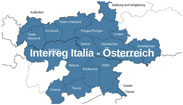
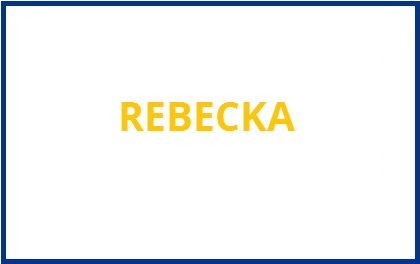
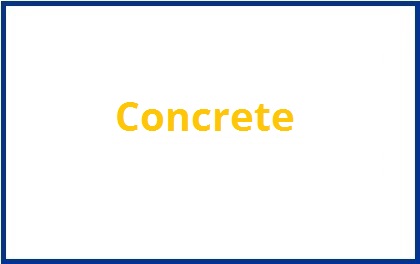
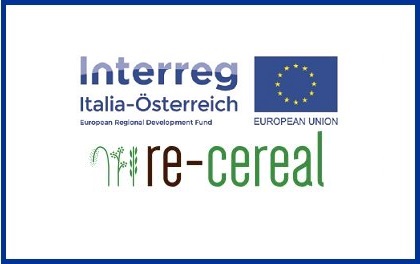
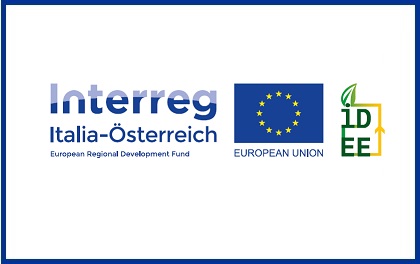
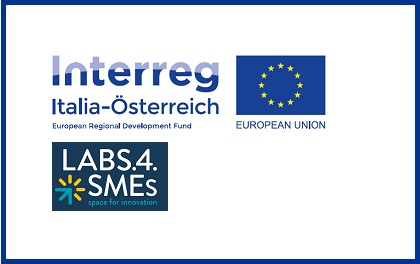
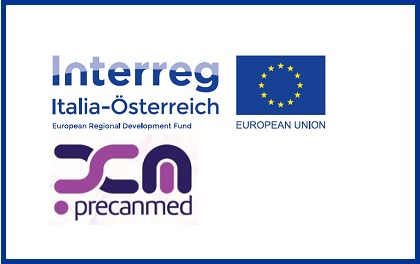
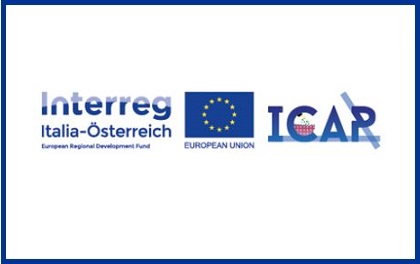
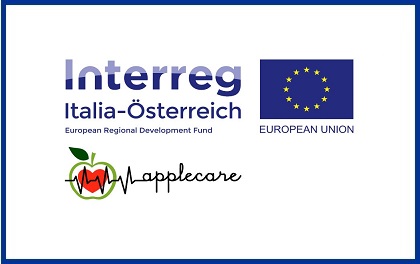
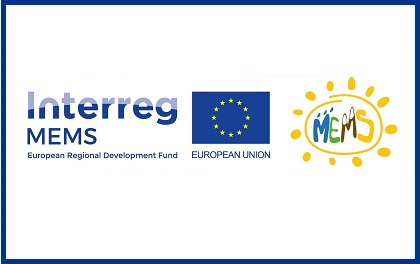
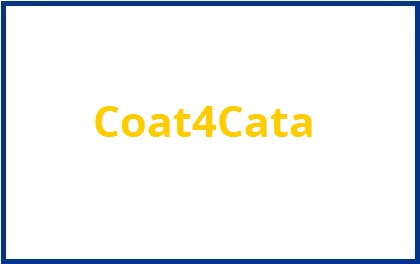
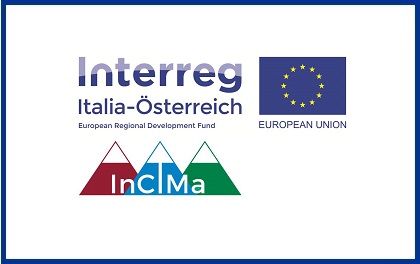
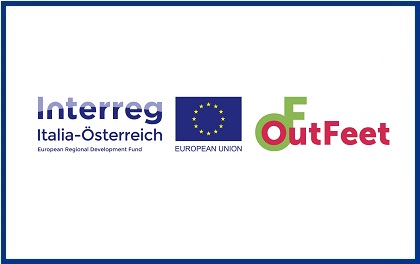
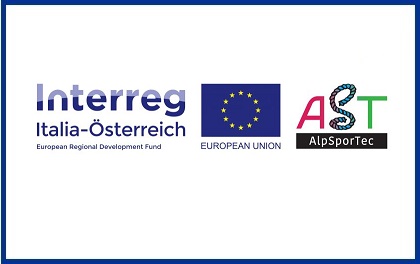
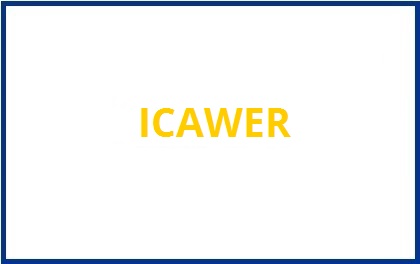
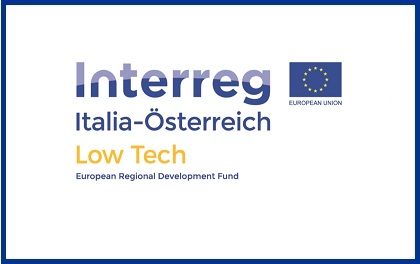
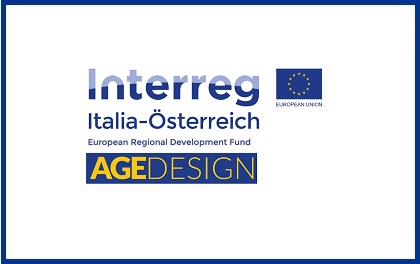
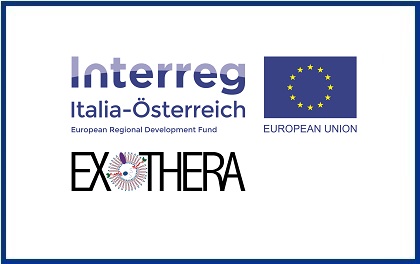
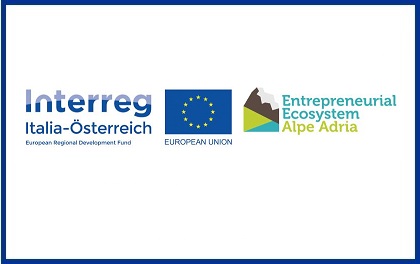
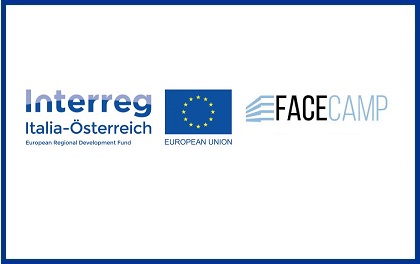
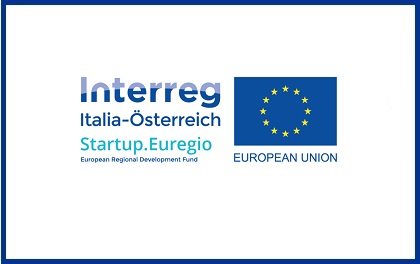
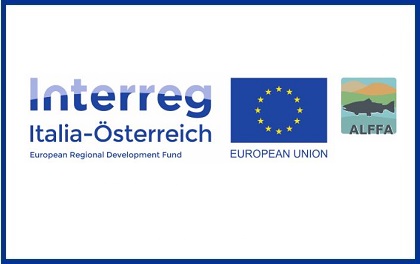
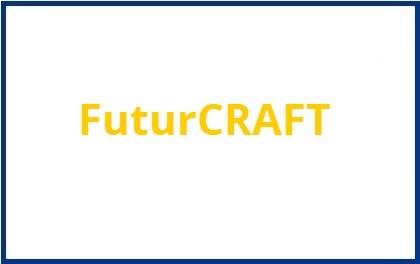
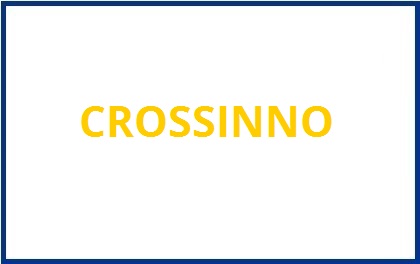
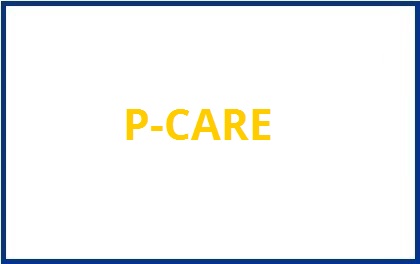
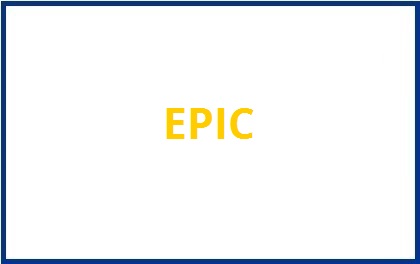
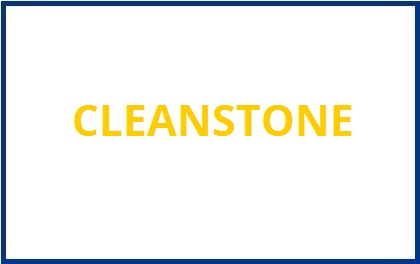
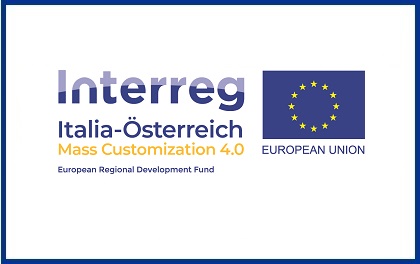
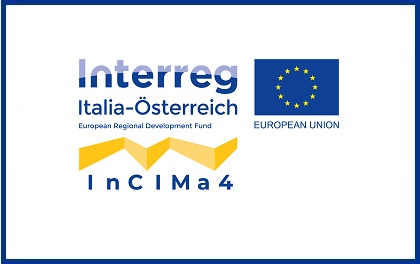
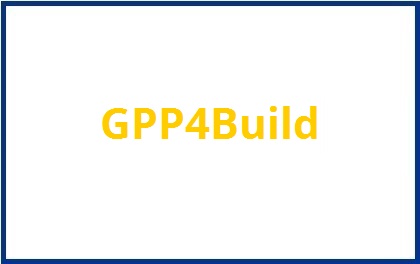
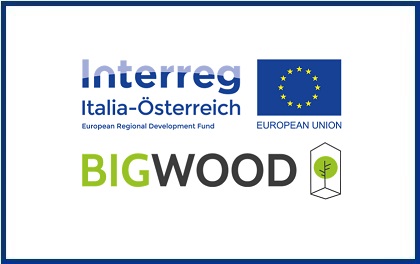
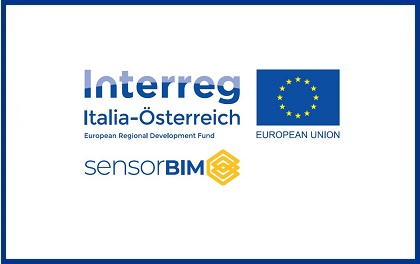
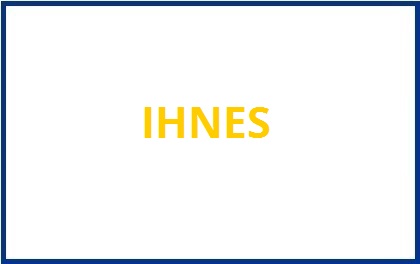
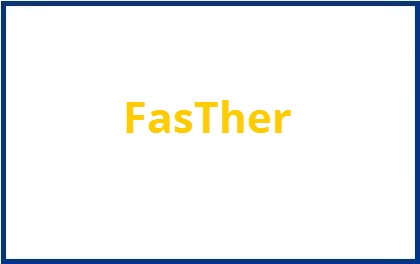
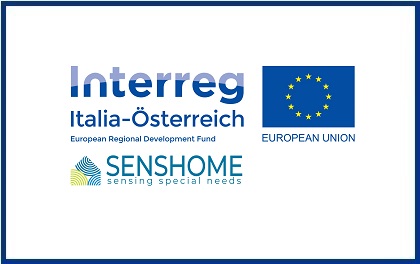
.jpg)